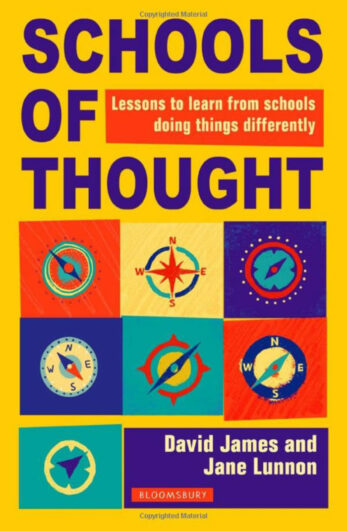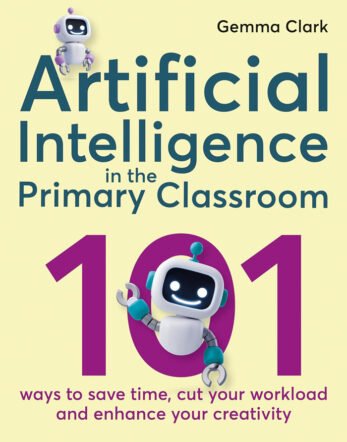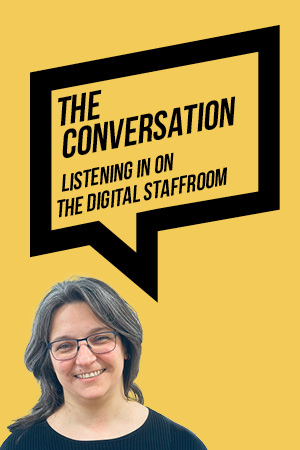I’m assuming that some people are happy that Article 50 has been signed, although I’m doing my best to avoid them. Perhaps they are the same people who are focused on looking backwards for the solutions to problems in the present.
Whether we like it or not, we are in a period of immense change. This could create opportunities for us to positively shape the future of education, but only if we are honest about the state we are in.
The danger of pseudo-traditionalist teachers
@IntEdToday
All our opinions are formed by our experiences. Therefore the tendency for people working in the same sector, in similar areas, is bound to generate the “group think” that makes blogs such as this even more important. If this blog is representative of how the English education system is viewed from abroad, then we should all be concerned.
It argues that “there is a vociferous minority of, predominantly UK, teachers who exalt a particular brand of right-wing ideology that sits uncomfortably with the more enlightened majority in the profession. These neo-traditionalists, or pseudo-trads, take their inspiration from Michael Gove and have a very narrow view of the purpose of education…Fortunately, the pseudo-trad nonsense seems the exclusive domain of the political right in the UK, and hasn’t permeated into the international sector.”
I agree with some of this, including the arguments against the common criticisms levelled against the “progressives”. “Of course, those on the progressive end of the spectrum don’t dismiss the importance of knowledge as many ‘neo-trads’ claim…It seems ludicrous to argue that there is a ‘best way’ to teach.”
Subject-based learning: let’s blow this baby wide open
@rethinking_ed
We really need new ideas in this brave new world of dog-eats-dog school survival in which the aims of the government are to re-create an unrealistic and mystical sense of the past educational system. James Mannion argues that, “1) schools have been focused almost exclusively on teaching a narrow band of traditional subjects for as long as anyone can remember; 2) I don’t know if you’ve seen the news ever, but the world is in something of a mess.
Conclusion: since we’re only alive for the blink of an eye, maybe we should try relaxing some of the odd top-down controls on what people can learn and when.”
He lists subjects that students could study, including active citizenship, analysing the media, argumentation, consensus building, ethical hacking, applying for funding and how to find reputable sources on the internet. He asks if there was a school offering subjects like this would you send your child there? I know that I would.
How to negotiate salaries for teachers
@ieshasmall
This blog made me feel conflicted. On the one hand, I applaud women empowered enough to argue for the salary they deserve. On the other, I know that schools funding is desperate and that negotiating a higher salary for one person could result in denied progression for another.
This blog gives clear guidance on how to negotiate a higher salary, including the need for market research. It also points out that it might not just be about money.
The last piece of advice is excellent: “Whatever happens you’ll be building those negotiation skills for a time when it really matters and it’s good to keep employers on their toes.”
Prejudice
@grumpyteacher17
My intolerance for inauthentic people seems to increase the older I get, but I try hard not to make snap judgments or at least to control the inner eye roll. In this short blog Grumpy Teacher reminds us not to make snap judgments of the children we teach because none of us ever really knows what other people are facing.








I think it is nice to see that Schoolsweek have an eclectic mix of blog reviewers. This weeks were interesting to read and as always gave cause for reflection.
What I found sad however was that another blogger who writes reviews for the same website and who appears to believe that anyone who does not agree with him after a brief argument is a “troll” saw fit to post the following on twitter.
“Oh. @SchoolsWeek Blogs of the Week review now covering trolls.”
Schoolsweek should consider refraining from using said bollger to review others again. Their reviews are always heavily biased
I like to read the blogs suggested in the reviews, whoever posts the review. I think however that it is quite rude and offensive to start posting disparaging remarks about other reviewers and/or reviews.
Maybe there is something in there he disagrees with and wishes to shut down debate…….heaven forbid.
I would not send a child to a school which taught argumentation or ethical hacking (that’s hacking we approve of I guess)but to a school that taught traditional subjects well, in a direct manner, so that armed with knowledge children can go out and prosper, argue their corner and benefit from the intuitive knowledge we have of co-operation,etc – these subjects are not what schools are for, argumentation is a natural skill. Schools teach what we need to know but are not well motivated as children to learn